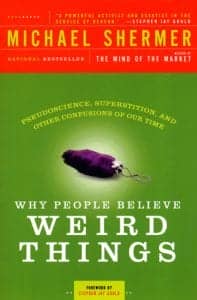Podcast: Download
Subscribe: Apple Podcasts | RSS

It happens to people all the time, and that’s usually because they don’t have decision parameters.
In other words, they don’t have systems of thought that help them use objective reasoning.
That’s important, because it’s definitely not something that happens on autopilot.
This point is also important:
It’s not that subjective reasoning or emotional reasoning is bad. Objective reasoning is not some kind of superhero force of good battling the dark forces of subjectivity.
But without placing our subjective experiences and ideas within the context of as much pure objectivity as possible, we rob ourselves of important opportunity.
What opportunity?
The opportunity to harness the power of context. Moreover, we want to enjoy the fullest possible field of context so that we can successfully weigh all of our options before making critical decisions.
What Is Objective Reason? A Working Definition
Objective reason goes beyond decision-making and your overall critical thinking strategy skill stack. Being able to reason objectively also helps you understand history, psychology and many other topics much better.
And when you can reason through any topic using multiple layers of reasoning, you’ll remember more as you understand the contexts at play much better.
When defining objectivity, we need to look at standards of thinking. In other words, we want our definition to include:
- Logic
- Impartiality and balance
- Practical matters
- Theoretical matters
- Time for deliberation
- Psychological biases that interfere with objectivity

In a phrase, objective reason is a mental thought process that requires logical consideration of a situation or topic that is informed of the possibility for distortion from subjective bias.
For example, people using objective reasoning will be:
- Highly self-aware of their minds
- Aware of a variety of tools for analysis
- Informed about the role of science and data in making good decisions
- Willing to take time for research and deliberation
What Is Subjective Reasoning?
People using subjective reasoning tend to either avoid or not know about the importance of objective tools, theories and the need for scientific data.

Instead, they rely upon their personal opinions, experiences and tastes. If they think outside of their personal context, they will tend to refer only to other people they know.
For example, they will say, “I don’t know anyone who has had this experience,” and allow that small, personal data set influence their decisions.
By contrast, an objective reasoner will say, “Although I don’t know anyone who has this experience, I’ll do some research to find out what scientific studies exist so I can expand my awareness.”
This form of reasoning is objective because it looks to the external world for information rather than relying solely on the individual’s first-person experience and ideas.
Is Objectivity Even Possible?
Good question.
The answer is yes.
However, we need to realize that the tools of science and data appear in the human brain’s of individuals. This creates the fact that each and every person experiences everything subjectively.
This fact does not mean that we as individuals cannot use objective reasoning to access facts that are true regardless of our subjective opinions and experiences.

For example, humans are biased for evolutionary reasons critical to our survival. But in the modern world, researchers like Daniel Khaneman have shown many ways we can avoid some of the traps of subjective reasoning and become objective where it is useful to do so.
In addition to learning about cognitive biases, it is useful to also study game theory books and texts on critical thinking. Why People Believe Weird Things by Michael Shermer is one of my favorite critical thinking books of all time. You Are Not So Smart is a close second.
How To Be Objective In Your Decisions
Now that we have a working definition of objective reasoning, let’s dive into some tips that will help you use objectivity to make better decisions.
I’ll share even more of my favorite books along the way.
One: Keep Learning About The Differences Between Objective and Subjective Reasoning
Now that you’re here, the journey has just begun. And it’s very important you keep studying this topic.
Here’s why:
It’s nice to learn about things, but that doesn’t mean you will completely understand them, let alone remember the key points.
To really benefit from developing objectivity in ways that will benefit you for life, find books that will teach you:
- The history of reasoning
- Cultural/geographical differences that influence reasoning (like proxemics)
- Philosophical issues
- Psychological issues
- Decision making books related to specific topics (business, family, health, etc)
It’s a great journey and the more you learn about this topic, the more you can learn about it as your brain makes deeper connections over time.
Two: Practice Objective Reasoning Frequently
On top of educating yourself, the key to making objective decisions well is practice.

Practice involves a few components:
- The decision to start
- Ongoing analysis of your thought processes
- Learning to identify and separate your subjective reasoning impulses
- Creating distance and delay between your subjective ideas before making decisions
- Analyzing your own subjectivity
- Performing needed deliberation and/or research
- Stress-testing your conclusions by imagining various outcomes
- Making the decision and following up with “postmortem” analysis
I realize this sounds like a lot of steps, but in many situations, it takes just a short while to go through the process.
In fact, during earlier periods of history, people frequently used a mental tool called ars combinatoria to help them with critical decision making.
Three: Use Writing

They say that the pen is mightier than the sword. It seems to help us think better too.
There are a number of ways to use writing to help you make objective decisions. For example, you can:
- List the pros/cons of a decision
- Create a to-do list for people you can consult
- Brainstorm some research resources to search through
- Mind map a series of possible outcomes after making a decision
- Email yourself a written version of your thought-processes
Four: Discuss Frequently With A Variety Of People
Many people say that you are the average of your five closest friends.
I’m sure there’s some truth to this statement, but I wouldn’t rely on it.
Instead, try to have conversations with as many people as you can, of all ages and all stations of life.

This is important because you’ll build your pool of perspectives based on lived experience.
And because there will be a large number of positive and negative experiences, you’ll have a stronger “radar” for what might be better for you. Plus, you’ll have a better sense of what kinds of decisions to avoid.
Remember O.T.E. as one of the most powerful resources you can have: Other People’s Experience.
Five: Talk To Yourself
Eckhart Tolle does a great job of pointing out how we drive ourselves insane with inner dialogue in The Power of Now.
However, that doesn’t mean all dialogue is bad.
Just as writing and speaking with others helps you gain an objective set of perspectives, you can also benefit a great deal by using your inner monologue.

I personally like to ask a lot of “if?” questions. For example:
- If I make this decision, what will be gained?
- If I don’t make this decision, what will be lost?
You can also ask questions that help determine how you are behaving around a situation. For example:
- Am I making this decision in order to win?
- Am I making this decision in order to avoid a loss?
Sometimes when you frame things in this way, you’ll notice that you may well be trying to avoid a loss, only to notice that the loss is quite small compared to what you could gain.
But without asking yourself such questions, you’ll never know.
Six: Schedule Critical Thinking Sessions

If you want to get sharp at using objective reasoning to make better decisions, you need to practice.
Why wait until you’re forced to make a decision to use your skills?
Every day, you have the opportunity to set aside some time to journal and go over the decisions you face now and in the future.
For example, I like to journal frequently during morning walks. I find a bench and spend 20-30 minutes going over the decisions I’ve either already made or need to make in writing.

There are many ways to journal during these sessions. You can:
- Use pros vs cons lists
- Describe possible outcomes
- Create to-do lists for completing research and due diligence projects
- Mind map
- Brainstorm
- Test motivations and rationales
The important thing is to create the time and space for deep reflection.
Seven: Create Clarity Around Your Motives and Intentions
We’ve all heard the advice that you need to “know your why.”
However, this statement is a bit misleading and will potentially weaken you.

Here’s what I mean:
Is just one “why” really enough?
If you’re making any kind of serious decision, you probably want to have at least five reasons why you’re doing something.
Not only that, but try this alternative reasoning exercise:
List out at least as many reasons “why not.” By completing this step, you create a set of counterarguments that can help you avoid decisions that may prove destructive.
Another way to get great clarity around decisions in an objective way is to use the W.R.A.P. model taught in Decisive by Chip and Dan Heath:
- Widen Your Options
- Reality test
- Attain distance
- Prepare to fail

This easily remembered formula is very useful for avoiding errors and generating reliable ideas and possible paths to solutions you likely wouldn’t find in any other way.
Eight: Create Benchmarks
Once you have your “why” in order and have applied W.R.A.P. it’s important to set benchmarks.
These are specific milestones on the way towards your goal. They matter because many goals take a long time to reach and need to be broken down into smaller tasks.
Benchmarks also help you make decisions along the way, so it’s useful to schedule in regular periods of review so you can pivot or augment a certain process when and where needed.
Nine: Create Metrics For Measurement
As you make decisions and execute on them, you’ll want to have a means of knowing whether or not you were successful.
It’s often said that you can’t manage what you don’t measure, but I think we need to go a step further.

We need to become aware of the benefits and potential cons of measurement. For example, we can wind up getting so involved in gathering and analyzing data that we wind up in collector’s fallacy.
So as useful as metrics certainly are for testing the validity of the decisions we’ve made, it’s important to cultivate and maintain an awareness of the potential traps in data. This is one of the core points of The Tyranny of Metrics, which anyone interested in objective thinking would do well to read.
Ten: Explore Other Kinds Of Objective Thinking
In addition to the W.R.A.P. formula, referring to other thinking models is one of my favorite things to do.
For example, the Triz principles have many useful processes that can get you thinking in multiple ways.
Although something like Triz applies to design and engineering, it will still be beneficial. Thinking through such principles, you expand your perspective and can look at your area of expertise with greater objectivity through another lens.
Eleven: Revisit Your Assumptions Frequently
Again, objectivity is something that you experience from within your subjective mind.
This means that no matter how objective you may think you’ve become, your objectivity can still go stale or become corrupted.
One great way to ensure you keep sharp is to develop a regular rereading strategy.
We also change as we age, so it only makes sense to revisit our thinking, ideally by going through the same sources that formed our thought processes in the first place..
Plus, the world is always transforming too.
How To Remember The Steps Involved In Objective Reasoning
Now, you might have noticed the nuance involved in developing reasoning skills that will last for life.
But the good news is that you can remember everything quickly.
To do that, I recommend learning the Memory Palace technique.
With it, you can take something like the W.R.A.P. model and rapidly remember everything.
You can also create a mnemonic calendar to help you remember to show up and practice the skills we’ve talked about today, like journaling.
Anyone Can Develop, Maintain And Improve Their Objective Thinking
Identifying your cognitive biases and learning about logical fallacies are admirable learning projects.
It’s just important to understand that the task is never done.
To be truly objective, you not only need to make sure you nurture yourself with multiple viewpoints and learn to be a solid researcher.
You need to continually revisit the process in order to compensate for change.
Your subjectivity won’t go away either, so it’s important to develop the ability to contextualize it amongst the multiple factors that go into being an individual with a sense of self.
Above all, practice making decisions with these tools frequently. Analyze the results of the decisions and allow the data to help guide future choices you make.
None of this should be a chore. Quite the opposite!
Once you have the steps involved honed into habits, it’s all fun, rewarding and helps you live as a better citizen of planet earth.
It’s a win-win for everyone involved.
Related Posts
- Skimming vs. Scanning: Which Helps You Remember More?
When learning to read fast, you might be wondering about skimming vs scanning. Learn which…
- Independent Thinking: 7 Tips On Becoming An Individual Thinker
Developing independent thinking doesn't have to be a hard task. These tips reveal how easily…
- 7 Critical Thinking Examples That Will “Bulletproof” Your Mind
Real life critical thinking examples are hard to come by. This post gives you 7…






2 Responses
Anthony, this podcast has given me more to think about. Thanks for the great work.
That’s great to hear, James. I appreciate you checking it out and letting me know.
Happy thinking!